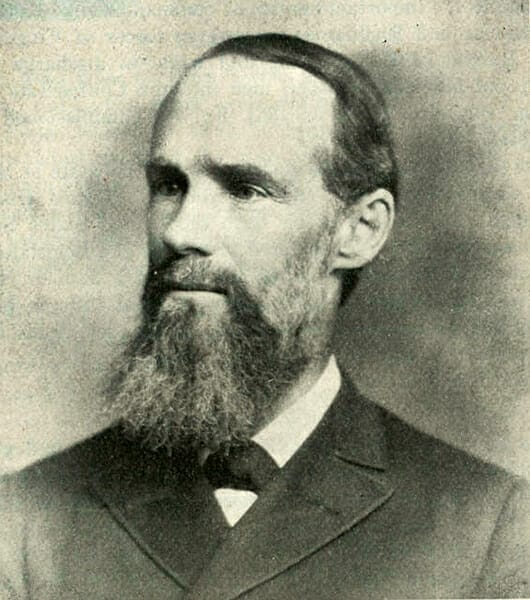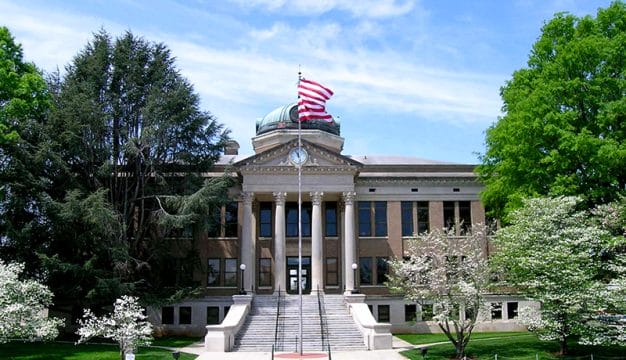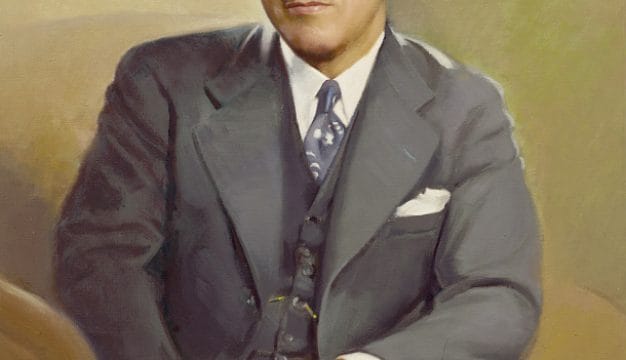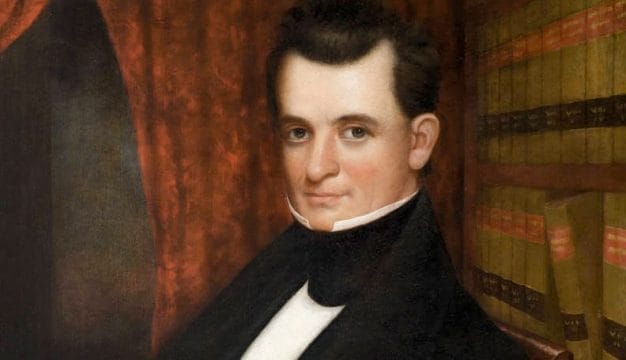James Edward Cobb
James Edward Cobb (1835-1903) served as a Democratic representative from Alabama’s Fifth Congressional District from 1887 to 1896. While in Congress, Cobb served on many House committees, including those overseeing education, Native American affairs, railways and canals, the District of Columbia, elections, and banking and currency issues. Cobb also served as a delegate to the Alabama Constitutional Convention of 1901.
 James Edward Cobb
Cobb was born on October 5, 1835, in Thomaston, Georgia, to William Anderson, a veteran of the Second Seminole War of 1836, and Jane McMurphy Cobb. One of ten children, Cobb received his early schooling in Thomaston local schools. In 1856, Cobb graduated with a law degree from Emory University in Atlanta, Georgia, and was admitted to the bar at Zebulon, Georgia, in November 1857. In 1858, Cobb moved to Quitman, Texas, on the advice of a friend. After a year, he moved to Henderson, Texas, where he remained until the town burned in 1860. After losing both his library and his clothing in the fire, Cobb moved once again, this time to Liberty, Texas, where he worked as a teacher until the Civil War began in 1861. Cobb then enlisted as a private in the Confederate Army with Company F of the 5th Texas Volunteer Regiment. During his time of service, Cobb rose to the rank of second lieutenant and in time was promoted to first lieutenant. Cobb fought in the Battle of Gettysburg, where he was taken prisoner and remained so for the duration of the war.
James Edward Cobb
Cobb was born on October 5, 1835, in Thomaston, Georgia, to William Anderson, a veteran of the Second Seminole War of 1836, and Jane McMurphy Cobb. One of ten children, Cobb received his early schooling in Thomaston local schools. In 1856, Cobb graduated with a law degree from Emory University in Atlanta, Georgia, and was admitted to the bar at Zebulon, Georgia, in November 1857. In 1858, Cobb moved to Quitman, Texas, on the advice of a friend. After a year, he moved to Henderson, Texas, where he remained until the town burned in 1860. After losing both his library and his clothing in the fire, Cobb moved once again, this time to Liberty, Texas, where he worked as a teacher until the Civil War began in 1861. Cobb then enlisted as a private in the Confederate Army with Company F of the 5th Texas Volunteer Regiment. During his time of service, Cobb rose to the rank of second lieutenant and in time was promoted to first lieutenant. Cobb fought in the Battle of Gettysburg, where he was taken prisoner and remained so for the duration of the war.
After his release, Cobb returned to Thomaston but soon moved to Alabama, settling in Tuskegee, Macon County. There, Cobb established himself as a lawyer and practiced in Macon, Russell, Lee, Chambers, and Tallapoosa Counties. After practicing alone for several years, he formed a partnership with Robert F. Ligon, which lasted until Ligon was elected lieutenant governor of Alabama in 1874; Cobb became a judge that same year. He married Caroline Elizabeth Hunter on October 24, 1867, and the couple would have seven children.
In 1874, Cobb ran successfully for a seat as a judge to the Ninth Judicial Circuit of Alabama; in 1880, his circuit was reconfigured as the Fifth Judicial Circuit of Alabama. He was re-elected continuously until 1886, when he successfully ran for a seat representing Alabama’s Fifth Congressional District in the U.S. House of Representatives, succeeding Thomas William Saddler. Prior to the election, Cobb expressed doubts about maintaining his judicial position and worried that if he stayed on the bench, his impartiality would be questioned by Republicans. Ultimately, Cobb resigned his judgeship, clearing the way for his election to Congress.
Cobb served on the Indian Affairs Committee during the passage of the Nelson Act of 1889, which allowed the government to negotiate land cessions with the Chippewa Indians of Minnesota, relocate them to a reservation, and gain access to the land and its timber. (Congress created a fund in 1999 to settle claims of federal mismanagement and undervaluing the land and timber.) On March 8, 1890, he proposed an amendment to a bill concerning the mandatory attendance of witnesses before registers and receivers of land offices, hoping to clarify the law and soften the punishment. The measure would have allowed different officers of the court to issue summons to people involved in legal actions and establish punishments for ignoring the summonses. Cobb objected to the principle that refusal to comply could be treated as a misdemeanor, which came with a $200 fine, and urged that it be lowered to $100. He also decried the opportunities for corruption that the summons issuances presented. The bill never became a law, however. Cobb also served on the Immigration and Naturalization Committee that passed the 1891 Immigration Act and declared that any immigrants who might become a burden to society, such as the mentally ill or the poor, could not enter the United States.
On April 21, 1896, Cobb was replaced in Congress by Populist Albert T. Goodwyn, who had successfully challenged Cobb’s reelection to the 54th Congress. After a decade in Congress, Cobb returned to Tuskegee and resumed his law practice. In 1901, Cobb served as Macon County’s delegate to the Alabama Constitutional Convention. After the convention, Cobb took up temporary residence in East Las Vegas, New Mexico, for health reasons. He died there on June 2, 1903, and was buried in Evergreen Cemetery in Tuskegee.



